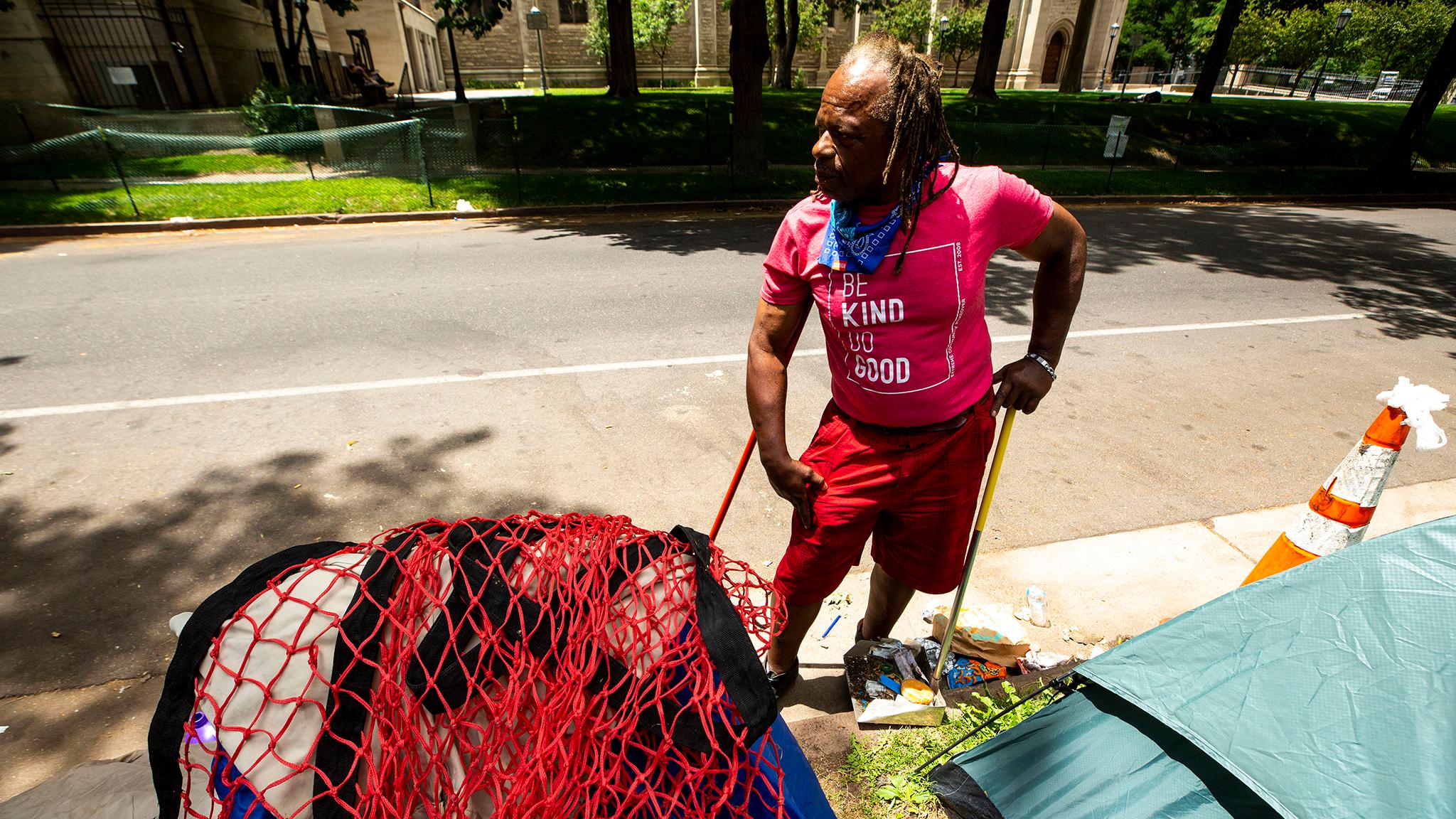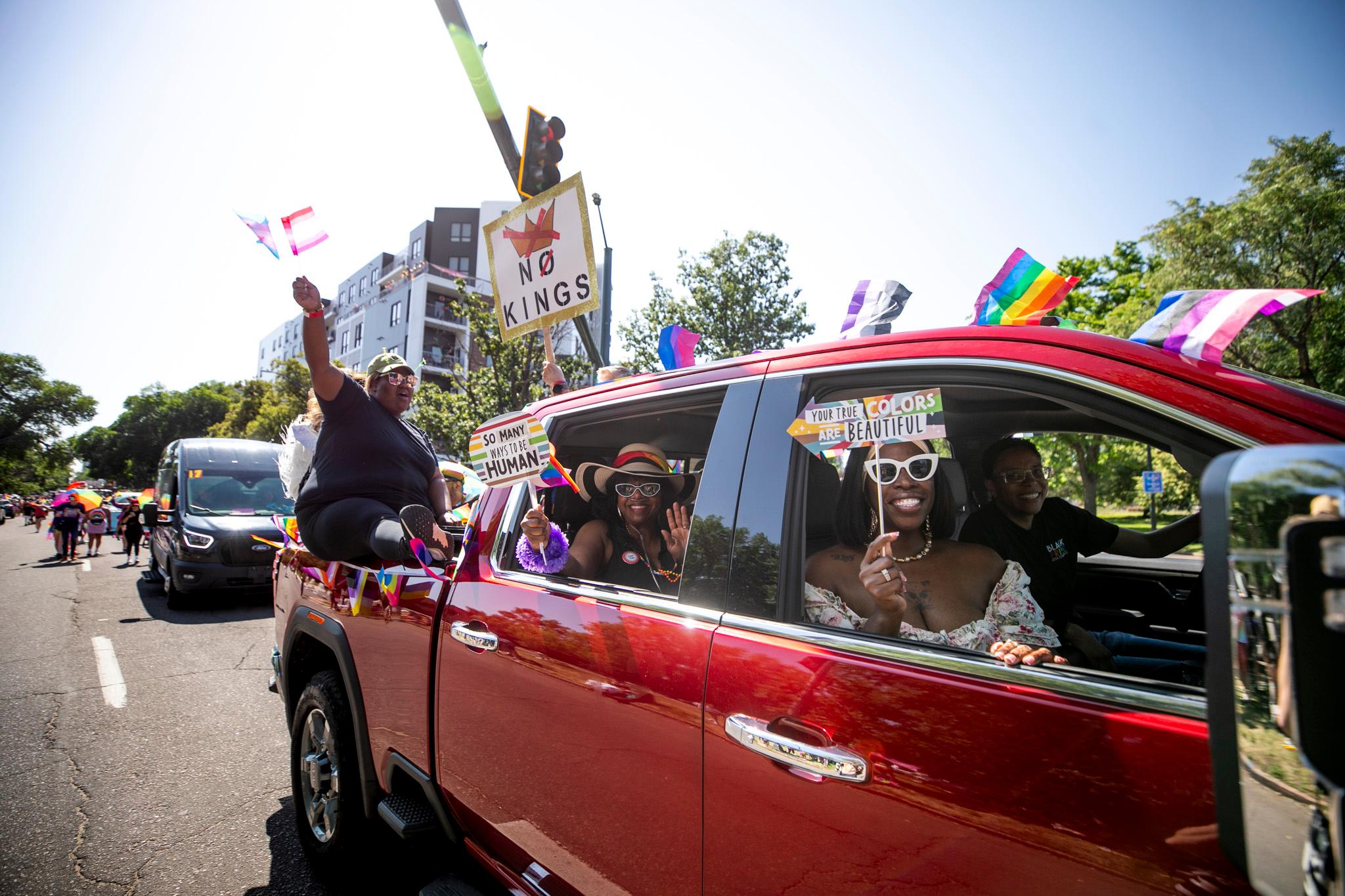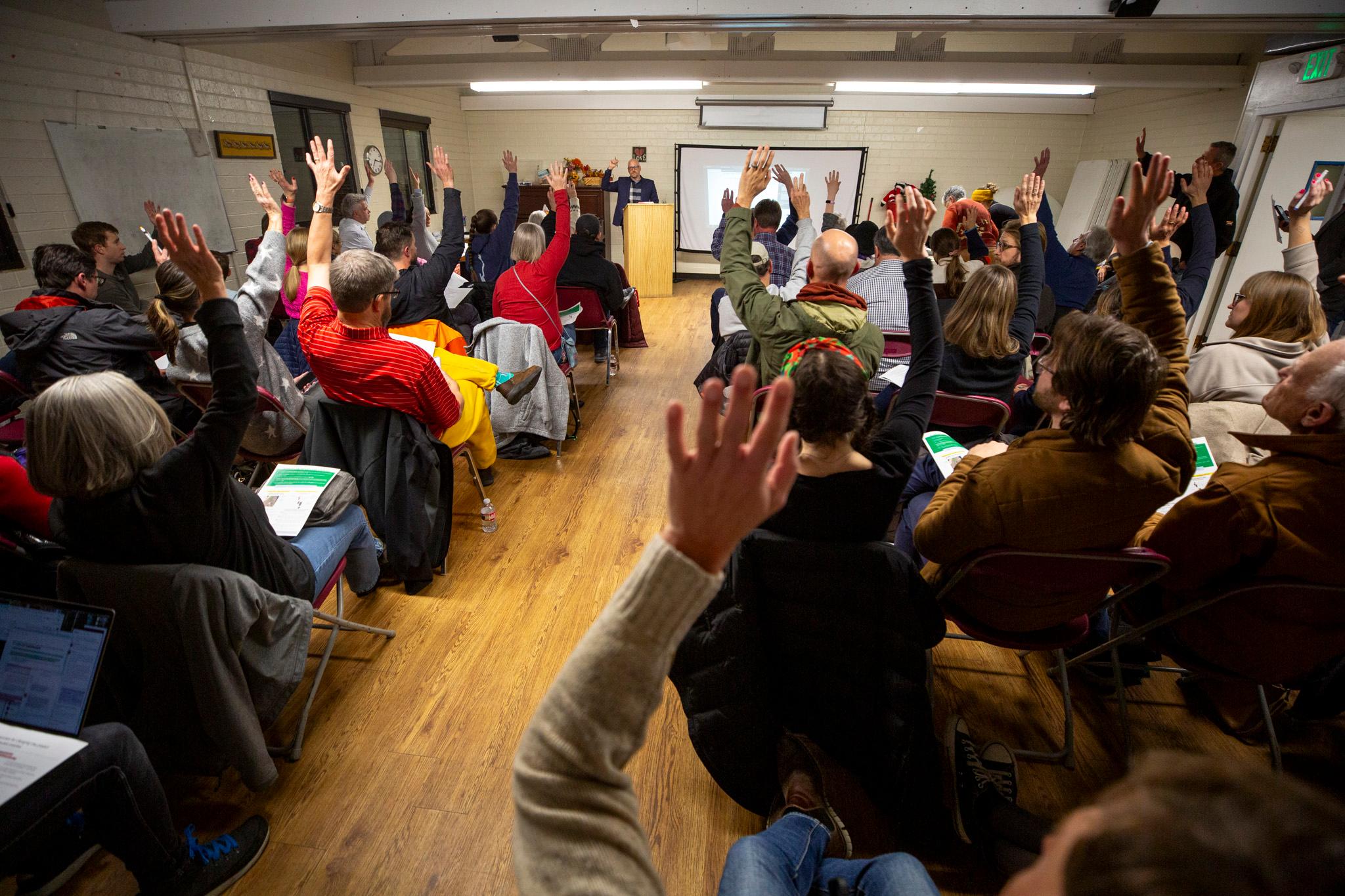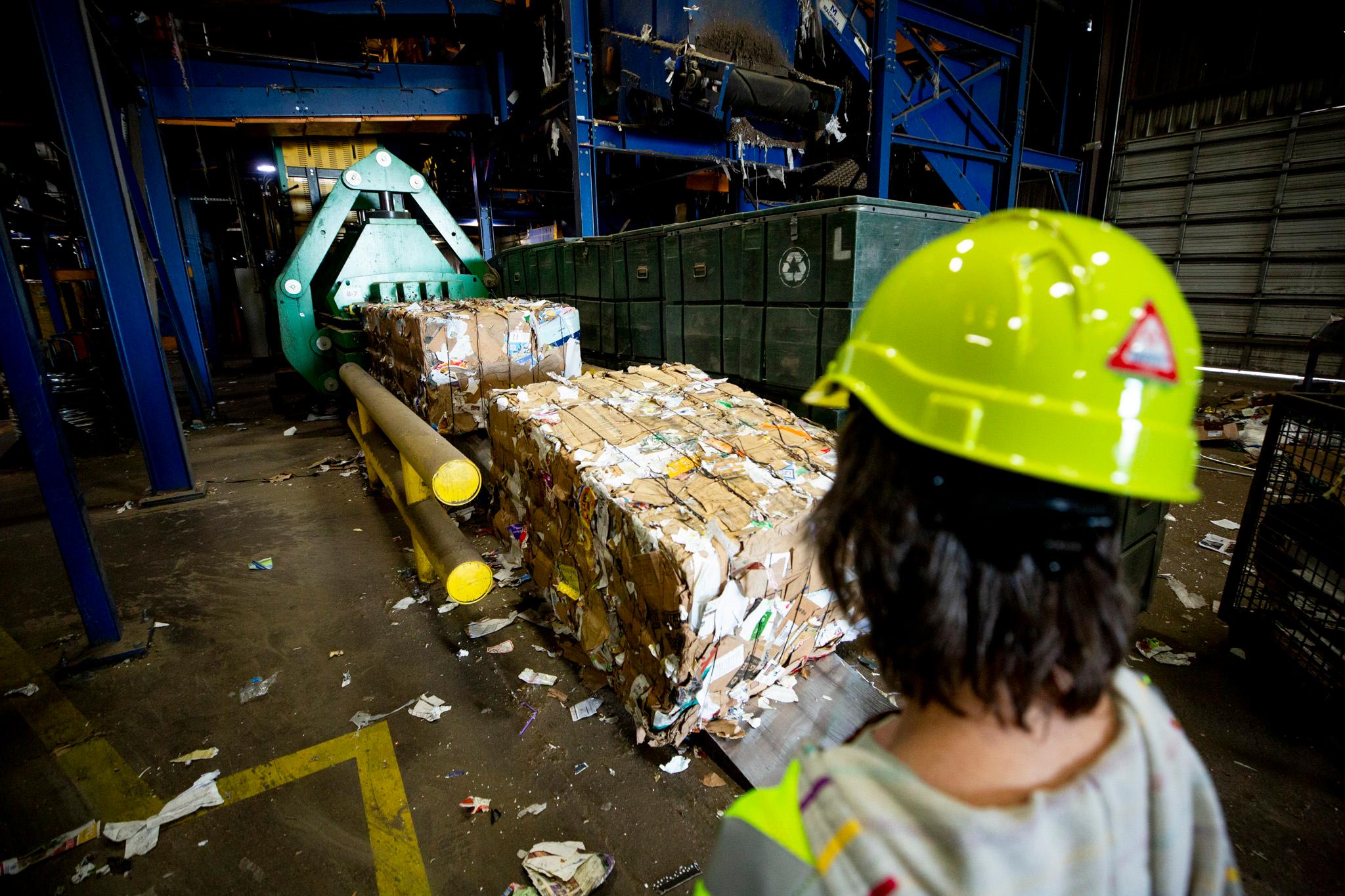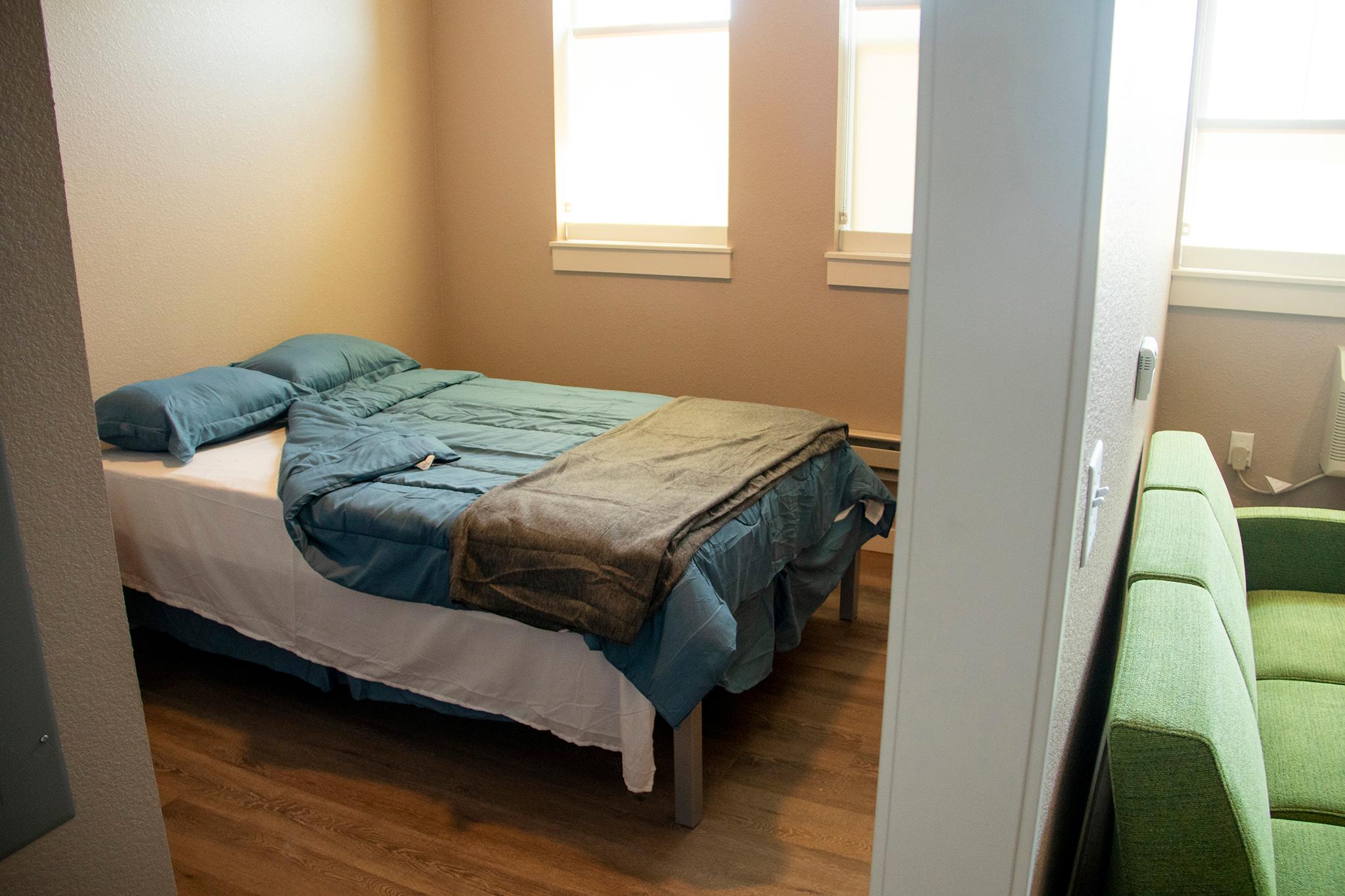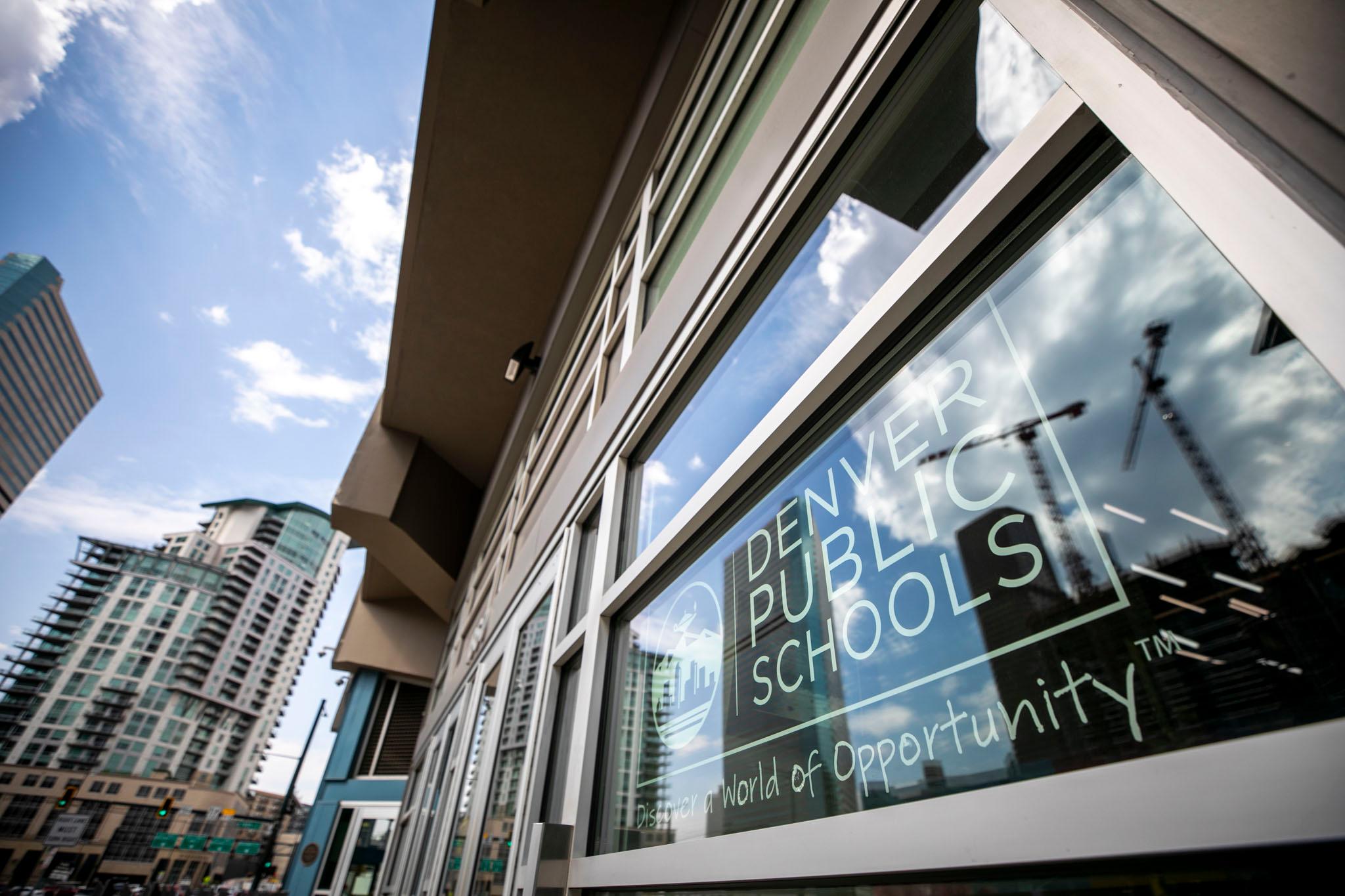A principal pushed city officials to ensure that her staff and students don't have to make their way to school through an encampment of people experiencing homelessness.
During a town hall meeting held Wednesday via Zoom, Mayor Hancock's deputy chief of staff and the city's top public health official said they hoped the campers would be elsewhere before classes resume at Morey Middle School on Aug. 17.
That wasn't soon enough for Hillary Niebauer, Morey's principal. She said that staff members will be returning July 20 and teachers at the end of the month, she said. In addition, time will be needed to clean the area after the campers leave, she said.
"We have to do something on a faster time table than I'm hearing being discussed," Niebauer said. "Are we even going to be able to open our school up? Can I open the school?"
"I don't think this is a question we can fully answer right here, right now," Hancock chief of staff Evan Dreyer replied. "July 20 is a little bit sooner than any of us were aware of. It gives us a new sense of urgency."
He said city outreach workers have started trying to persuade campers to move to motel rooms, shelters or perhaps a proposed sanctioned camp site.
"We're trying to do this in a way that ... does not lead to conflict," Dreyer said.
Bob McDonald, executive director of the Department of Public Health & Environment, had said earlier in the meeting that he thought it would be possible to clear the camp by Aug. 17, in part because the city was able to offer services such as 24-hour shelters that had not been available before the pandemic. After listening to Niebauer, McDonald said July 20 "is a little bit more aggressive."
City Council member Chris Hinds, whose District 10 includes Morey, said he had convened the town hall to facilitate communication, and was glad that it served to have brought Niebauer's concerns about timing to the attention of the mayor's office.
The Morey camp has grown since the pandemic reached Denver in March and in particular since people experiencing homelessness who had been camping around nearby St. John's Episcopal Cathedral moved on May 20 because of a cleanup prompted by health and safety concerns.
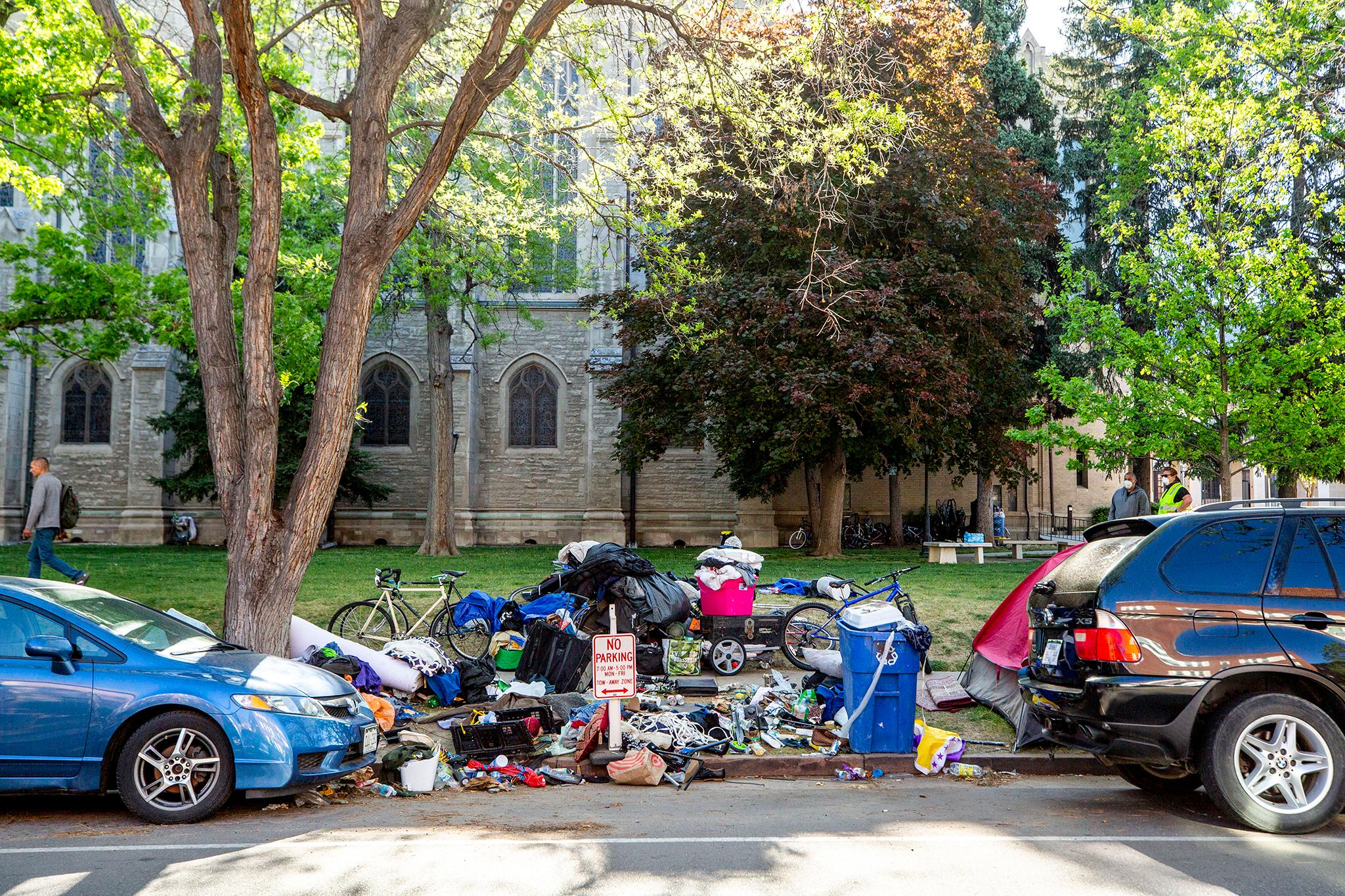
Erin Kozakowski said she moved out of her condominium near the school because of the campers, saying among them were people who vandalized cars and urinated in the streets. Drug use among the campers also has raised concern among neighbors.
McDonald said in addition to the risk of COVID-19, people on the streets were exposed to diseases such as hepatitis A. The build-up of trash and human waste at camps drew rats, McDonald added.
Among the Morey campers was Stella, who gave only one name when she addressed the town hall. She said many of the campers considered themselves a community and were trying to decide together where to move because they did not want to be near a school when classes were in session. She said Aug. 17 was "kind of like D-Day as far as finding and executing another option," Stella said.
The camp is home to fewer than 100 people, according to Terese Howard of the advocacy group Denver Homeless Out Loud. Howard said only one of 53 people in the camp who were recently surveyed wanted to stay after school started. Most wanted to move to permanent housing and others to either a camp they could run themselves or a proposed temporary, city-sanctioned camp where nonprofits would provide tents, bathrooms, showers and other support.
Thursday, Derrick Haye, a 64-year-old Air Force veterar, was pacing along a row of tents on the west side of Morey, sweeping up debris that included a discarded doughnut. Haye said he had told the Denver Homeless Out Loud survey team that his first choice was to move to permanent housing. Haye said he has been working with Veterans Affairs to try to find a home. He has been on the streets for eight years.
Haye said he planned to move before students returned to Morey, though he was not sure where he would go.
"When it's time for school, we have to surrender this," he said.
"I think everybody here wishes they could get a shower. Something that simple," Haye said, adding he'd taken a bucket down to Cherry Creek the night before to wash.
"I'm not complaining. I'm happy to be above ground. But I see a lot of suffering," he said.
Haye had heard from Denver Homeless Out Loud about the possibility of a sanctioned camp. He was among several people camping near Morey who said Thursday that they had not been contacted by city outreach workers about their options.
Hancock had announced last week that he was reluctantly supporting sanctioned camps where people experiencing homelessness can shelter amid the COVID-19 pandemic. Hancock has said the focus should be on getting people into permanent housing, not tents, but that "COVID has introduced a new reality."
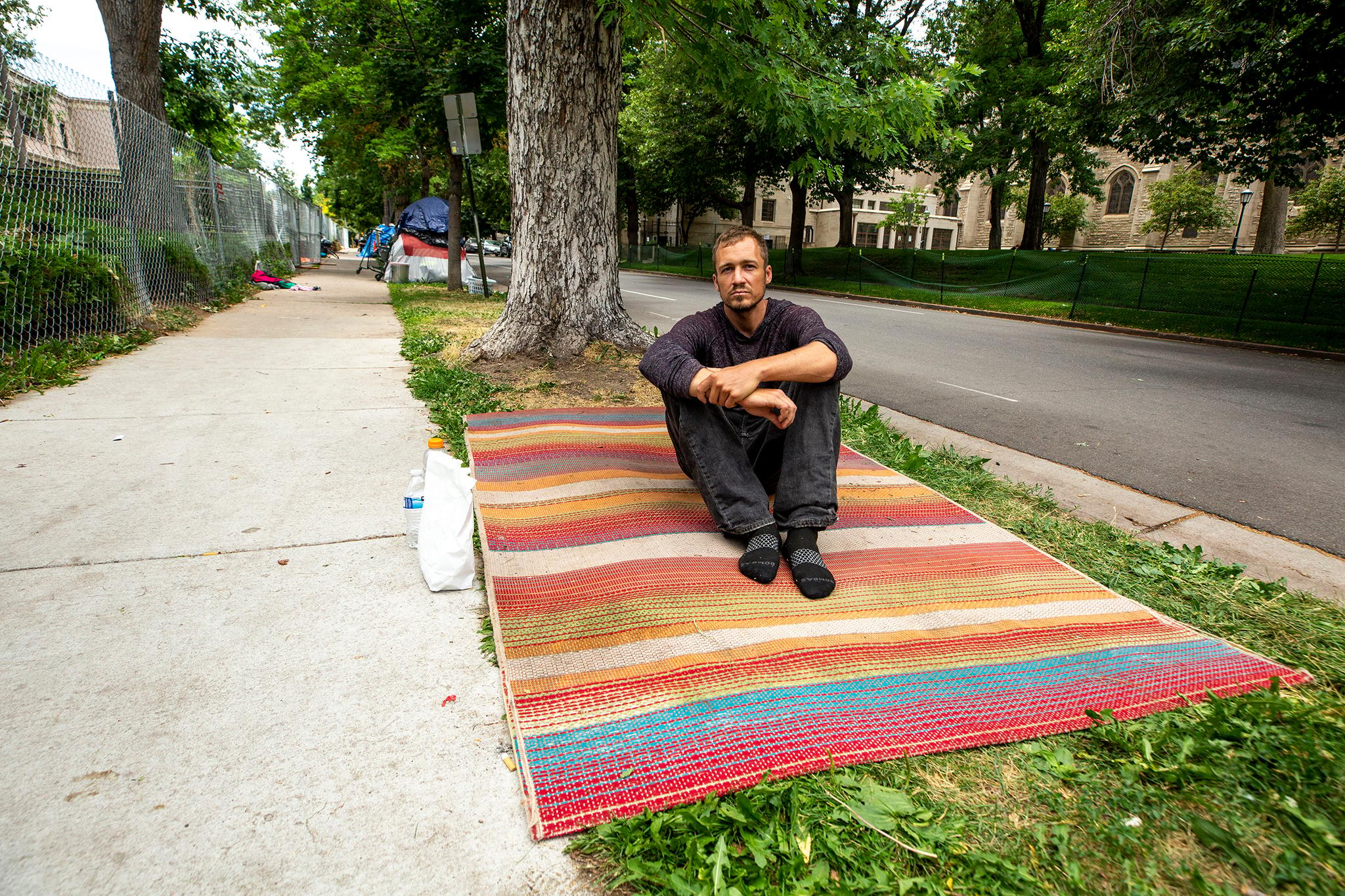
City officials said Wednesday that the pandemic, which has slowed the economy, may have led to more people ending up on the streets and to people from neighboring cities that do not have shelters moving to Denver, creating large camps that pose multiple health risks.
In a letter sent Wednesday, Hancock asked for help identifying sites from the eight local lawmakers who wrote him in April endorsing a proposal for sanctioned camping.
In the letter, the mayor said two or three 50-tent camps would be managed by Colorado Village Collaborative, a nonprofit. He said other decisions regarding the camps, including whether to grant any zoning changes that might be necessary, might have to be approved by City Council and that he had no formal process for choosing sites.
"This is why I am writing to you today," Hancock wrote. "Nobody knows your council district better than you. Therefore, I request that each of you ... identify at least one potential site in your district to support a temporary COVID-based" campsite. The eight council members Hancock contacted were Candi CdeBaca, Stacie Gilmore, Hinds, Paul Kashmann, Robin Kniech, Debbie Ortega, Amanda Sandoval and Jamie Torres.
Hancock said a site should be about 10,000 square feet, which he said was large enough for 60 people and the 50 tents set up in compliance with social distance guidelines, restrooms shower facilities and common area they would need. He said the camps would be in place "as long as public health orders and the pandemic are in place."
Dreyer said during the town hall that he expected the first site to be identified in the next couple of days and to have the camp up and running in a few weeks.
Hinds said he had been considering the question of a site for a sanctioned camp in his District 10 even before receiving the mayor's letter. Hinds said he had identified a privately owned plot, but could not give details because he had not yet been able to contact the owner.
After receiving the letter, CdeBaca posted a Facebook appeal to residents of her District 9 asking for recommendations on a site.
Torres said in an interview she hoped any difficulties finding a site, including possible opposition from residents near any designated location, would not stall the project.
"Those of us who supported it (the sanctioned camping proposal) need to step into this space and try to figure out how to champion it," she said.
Torres said the city has tried to support businesses impacted by COVID-19. "Why wouldn't we also do that for a humanitarian need?" she said.
Torres said she did not immediately have any sites in mind in her District 3. Neither did Paul Kashman, who represents District 6. But Kashman said in an email that he thought large event sites such as the Coliseum, Pepsi Center, Mile High Stadium and National Western that have large, seldom-used parking lots might be contenders.
"I think finding safe spaces for unsheltered residents benefits all of us," Kashman said. "I'll want to hear more about what the mayor envisions. As we found with siting tiny homes, it's a challenging discussion."
Last spring City Council voted 13-0 to lease city-owned land in Globeville where Colorado Village Collaborative, which will manage the sanctioned camping, moved a tiny home village that houses people without homes. Some in Globeville had tried to stop the move, with opponents expressing contempt for people experiencing homeless and saying they would have preferred a park or some other use for the vacant lot in a long neglected corner of Denver.

